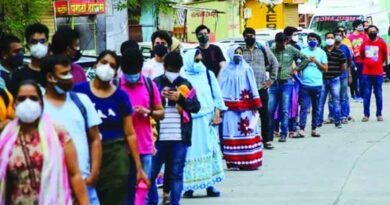No questions please
The Question Hour allows the Opposition to keep a check on the executive. Suspending it emaciates democratic spirit
At one level, we are being told to “live with the virus,” working our ways around it with safety protocols as postponing life-altering decisions is no longer an option. Governments are working, elections are happening, policies are being made and global deliberations and summitry are on course. Yet at another level, regimes across the world are using the pandemic as an excuse to dictate national life by curbing choices and pushing their agenda. And India is no better where the democratic core of the parliamentary system is being diluted under the garb of protecting our lawmakers. What else can explain the Government’s suspension of Question Hour in the forthcoming monsoon session of Parliament as a precautionary measure against “crowding” and contraction of the Zero Hour? If crowd management is not an issue while conducting polls in Bihar or even conducting the JEE-NEET exams countrywide, why should managing MPs, who anyway are going to be on a rotational drill, be a challenge with safety protocols? That too, during Question Hour, where the Opposition gets the only chance to question the Government and hold it to account? Besides, it has a structured format, with MPs required to submit a questionnaire 15 days in advance. So there could be even a staggered roster of Ministers and their officials to answer them. But scrapping it altogether means that the Government is not ready to face uncomfortable questions on pandemic management, the economic slide and the Indo-China stand-off at Ladakh and get on with pointed legislative business without much debate and discussion. Its Ministers are clearly not willing to inform the House about the rationale of decisions taken, if not defend them. In other words, this monolithic assertiveness is corroding the deliberative and inclusive character of the legislature. Even the Zero Hour, that allows for impromptu discussion on public policy, has been curtailed to 30 minutes. Expectedly, the Opposition is going hammer and tongs over the decision, spearheaded largely by the Trinamool Congress (TMC). Its MP Derek O’ Brien has asked why the Question Hour had been dropped considering the Parliament’s overall working hours remain the same and no private members’ Bill will be moved. He even asked why the monsoon session was being called a “regular” session and not “extraordinary” to justify the curtailment of the Question Hour. The TMC even cited how the Question Hour was dropped during the 33rd (1961), 93rd (1975), 98th (1976) 99th (1977) sessions over specific reasons like Odisha, proclamation of Emergency, the 44th Amendment and President’s Rule in Tamil Nadu and Nagaland. Sensing the outcry, the Government on its part deployed seasoned senior Minister Rajnath Singh, who is known to share a good relationship with the Opposition, to converse with its leaders and ensure a smooth flow of proceedings. This individual bridge-building has worsened matters as an all-party virtual meeting could have sorted matters better. But the Opposition, which anyway doesn’t have the big enough numbers to stop Government policy, is not ready to let its voice go unheard. Or the ethics of parliamentary democracy be compromised.
The Question Hour is the only time that allows the Opposition equal standing and allows it to keep a check and balance on the executive. Even Treasury Bench MPs can ask questions of a Minister for better clarity on policies. Dropping it means reducing the relevance of the MP. A legislator asks questions on behalf of the constituents who elect him and any democratically-elected Government is, therefore, duty-bound to respond. Every citizen has the right to know the details of the functioning of a State and the Government is morally bound to place them on record. Even if the pandemic is a looming threat, the Government could have at least taken the questions and worked out a system of virtual responses in real time. Anyway, the Question Hour hardly sees a flurry as Ministers answer by rotation and questions are selected through a ballot and starred for discussion. The House of Commons even has a dedicated slot for “Prime Minister’s Questions”, where the Prime Minister personally answers or explains his Government’s functioning. That hasn’t happened here in recent memory and certainly looks most unlikely in the handout era of information dissemination. Besides, even the nature and tenor of questions are regulated by several rules before they are cleared and scheduled. So the Government should not have scrapped the Question Hour fearing recklessness and pandemonium. Perhaps, its suspension this time will also awaken the Opposition to hold up its end of the bargain going forward. For in the past, Question Hour has been routinely disrupted, stalling productive discussions and debate, particularly in the Upper House. But without it, there will be no accountability. And once a precedent is set, it will always be cited to justify another regulatory move.
Source: PTI




